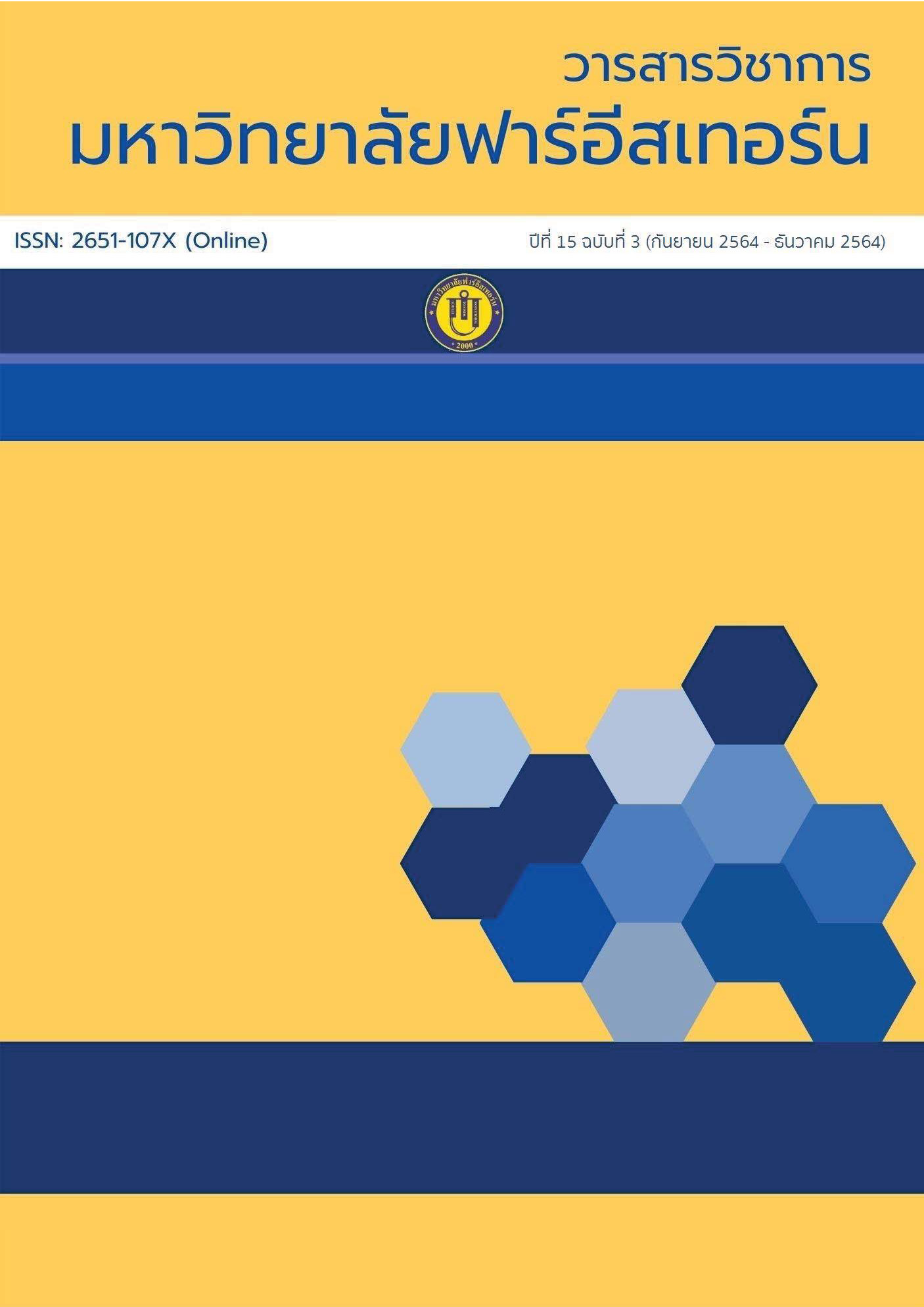The Development of an English Communication Training Program for Border Patrol Police
Main Article Content
Abstract
The purposes of this research were to develop an English Communication Training Program for Border Patrol Police and to study the results of using the curriculum. The research process was divided into 4 phrases which were Phase 1: General information study, Phase 2: Curriculum development, Phase 3: Implementing the curriculum and Phase 4: Evaluation and curriculum improvement. The sample group in Phase 3: Implementing the curriculum, was 30 border patrol police. The tools used to collect data were the English for Communication Skills Test and surveys asking the trainees’ opinions about the training course. The data were analyzed using percentage, mean and standard deviation. The research results revealed that 1) The results of the development of an English Communication Training Program for Border Patrol Police 1.1) The results of the study of general information revealed that the English language training course used in police duty contained only a content framework for general English. However, the course was insufficient in content of English for Border Patrol Police. The training mainly focused on lecturing, giving knowledge but it lacked practice and application in practice. 1.2) Training curriculum development consisted of background and importance, principles, objectives, content, time, activities, trainees, training material and evaluation. The suitability of the training program was a very appropriate level; especially contents in 4 units related to the use of English for Broder Patrol Police. 2) The results of implementing the training curriculum showed that the trainees' ability to use English for communication before and after the training was significantly different at the .05 level. In the phrase of evaluation and curriculum improvement found that the overall level of feedback on the course was at a high level. Considering each aspect, it was found that the opinions on the content of the curriculum were at a moderate to high level. Opinions on activities, comments on lecturer were at the high level and opinions on the curriculum was found that the opinion level was moderate to high. The trainees realized that they had gained a high level of knowledge and skills in English from the training program that were useful for their practice as a border patrol police.
Article Details
1. Any views and comments in the Journal of Social Innovation and Lifelong Learning are the authors’ views. The editorial staff have not to agree with those views and it is not considered as the editorial’s responsibility.
2. The responsibility of content and draft check of each article belongs to each author. In case, there is any lawsuit about copyright infringement. It is considered as the authors’ sole responsibility.
3. The article copyright belonging to the authors and The Far Eastern University are copyrighted legally. Republication must be received direct permission from the authors and The Far Eastern University in written form.
References
Harmer, J. (2019). The practice of English language teaching. Harlow: Pearson EducationLimited.
Jaritek, R. (2012). 4 strategies for Thai police to the ASEAN. Retrieved January 15, 2018, from https://www.komchadluek.net/news/crime/130722. [In Thai]
Kensupho, S. (2017). Human Resource Training and Development. Retrieved November 2, 2021, from http://portal5.udru.ac.th/ebook/pdf/upload/186e5h69UCyt5gU3y755.pdf. [In Thai]
Kongterm, S. (2013). The Development of Online Training Curriculum to Enhance Competency For Teacher in Office of Basic Education Commission. (Research project, Research in Education, Faculty of Education, Phetchabun Rajabhat University). [In Thai]
Language Learning and Teaching Unit. (2015). CEFR Manual for Secondary Level. Retrieved January 25, 2017, from http://ltu.obec.go.th/english/2013/index.php/th/2012-08-08-10-26-5/74-cefr. [In Thai]
Larsen-Freeman, D. & Anderson, M. (2011). Techniques and principles in language teaching. Oxford: Oxford University Press.
Marsh, C. J. & Willis, G. (1995). Curriculum: Alternative approaches, ongoing issues. Englewood Cliffs, N.J.
Phrueksasin, N. (2005). The Study of Needs for the Development of English Abilities forTourist Police, Sub Division 3, Tourist Police Division: The Lower North Region of Thailand. (Master’s thesis, Master of Educational Administration, Rajabhat Pibulsongkram University). [In Thai]
Poomrin, S. (2006). Development of an English language training course for the operations of Tourist Police officials, Tourist Police Division. (Master’s thesis, Master of Education, Phranakhon Rajabhat University). [In Thai]
Regional Education Office No.10. (2012). Knowledge Management and Training Technique. Retrieved November 2, 2021, from http://www.reo15.moe.go.th/web/images/yutasan/km57/km572.pdf. [In Thai]
Richards, C., Jack. (2006). Communicative Language Teaching Today. Cambridge:Cambridge University Press.
Royal Thai Police. (2014). Fiscal Year 2014 Royal Thai Police Action Plan. Retrieved January 15, 2018, from https://www.edupol.org/eduOrganize/publicDoc/plan/planHQP/2557/PlanHQP.pdf. [In Thai]
Smithikrai, C. (2011). Personnel training in organizations. Bangkok: Chulalongkorn University Printing House
Sritoklin, K. (2006). The Development of Training Program on English for Tourism for Local Police in Phetchaburi Province. (Master’s thesis, Master of Education, Silpakorn University). [In Thai]
Taba, H. (1962). Curriculum development; Theory and practice. New York: Harcourt, Brace and World.
Tyler, R. W. (1950). Basic principles of curriculum and instruction. Chicago: The University of Chicago Press.
Utranan, S. (1987). Curriculum Theory. Bangkok: Department of Educational Management. Chulalongkorn University. [In Thai]
Viriyajittra, A. (1989). Teaching Languages for Communication. Bangkok: Aksorn Charoen Tat. [In Thai]
Wongyai, W. (1997). Curriculum and Learning Innovation to be a good citizen. Bangkok: R and Print. [In Thai]

